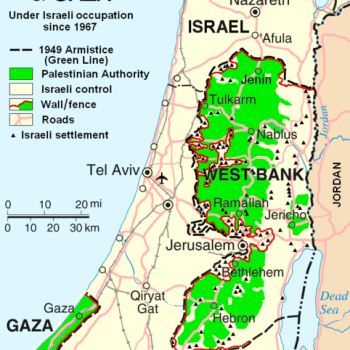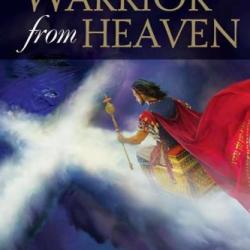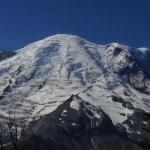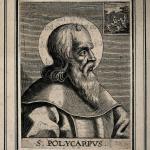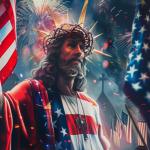Jews lived in their “land of Israel” for nearly 1,500 years until the Romans ousted them following The Second Jewish Revolt of 132-135 CE. The Romans then forbade Jews to live in Jerusalem on pain of death, changed its name to the pagan name Aleia Capitolina, and made it very difficult for Jews to live in the land of Israel anymore. So, Jews dispersed into the Gentile nations, mostly in the Middle East and Europe, just as Moses had predicted (e.g., Deut 4.27; 28.63-64; 30.17-18). Thus began the second and more thorough Jewish Diaspora that lasted for the next 1,650 years.
Orthodox Jewish rabbis throughout this Diaspora had always said that Jews must wait for the Messiah to come to deliver faithful Jews from their enemies, return all Jews worldwide to the land of Israel, restore the nation of Israel to even a greater status than it had during the golden years of the monarchies of David and Solomon, and bring peace forevermore. Therefore, these rabbis said that Jews trying to reestablish the nation of Israel prior to the coming of the Messiah represented disbelief in the Messiah coming to do those things.
But Jews often suffered horrendous treatment by Gentiles in those host countries. This came to be called “the Jewish Problem,” meaning that Diaspora Jews suffered so much because they did not have their nation.
Then, during the 1880s, several pogroms were directed against Diaspora Jews living in Russia. This resulted in many of these Jews emigrating to their ancestral land. The better parts of this land, mostly the Judean hill country, were inhabited by Arabs. So, these Jews settled mostly in the coastal plain and restored much of it from ruin that had occurred due to laying desolate for so many centuries.
This concerted effort of Jews resettling their ancestral land was named Zionism in the late 1880s. A journalist, playwright, and irreligious Jew from Vienna, Austria, named Theodore Hertzl became the early leader of Zionism. Thus, Zionism was a non-religious, secular movement that was only trying to solve the Jewish Problem. What was it? Jews never successfully integrated with Gentiles in their host countries and therefore resided in their own, separate living quarters. Zionists thought this problem of Gentile prejudice and persecution directed against Jews could be solved by them having their own nation. Thus, the Zionists ultimate goal was to reestablish the State of Israel and base it on secular principles of democracy.
During all this time that Zionism sought to become established in the Jews’ ancestral land, Orthodox Judaism was strongly opposed to this courageous endeavor and therefore did not take part in it. Orthodox Jews remained in their host countries, advocating being politically passive and criticizing Zionists for their supposed misguidance. The Orthodox insisted Jews would reestablish their nation in “the land of Israel” when God decided it and sent his Messiah to accomplish it. To do otherwise was not even Jewish or at least represented disbelief in God and his program.
Soon after Israel became a nation again, in 1948-49, Orthodox Jews began to change their view of opposition to the Zionist project. Not only that, they eventually became the strongest supporters of the State of Israel. Whereas they had been totally against political, human endeavors to reestablish the nation, now they entered into politics by forming political parties and getting their representatives elected to Israel’s parliament, called “the Knesset.” In recent times, the Orthodox Israeli Jews have had much more political clout in Israel than their numbers justify, and this angers many irreligious Israeli Jews.
While I agree with Orthodox Jews’ on matters of biblical eschatology much more than with the other two factions of Judaism, Conservative and Reformed, which exists mostly in the U.S., I think Orthodox Judaism really blew it by misunderstanding some prophecies in their Jewish Bible that had made them opposed to the Zionist effort of reestablishing the nation of Israel.
First and foremost regards the temple. Jews used to worship God at the temple in Jerusalem, where animal sacrifices were constantly offered to God on the altar there. But the Romans destroyed the second temple in 70 CE during the First Jewish Revolt (66-70 CE), and a temple has not existed there ever since. The Orthodox had always said the Messiah will come and rebuild the temple, so that it will be the third temple, and Jews should not try to build it before then.
But several prophecies in the Jewish Bible indicate that there will be a temple at Jerusalem during the latter days preceding the coming of Messiah to deliver Israel and establish his worldwide kingdom. Plus, some of these prophecies say that Jews will then be offering animal sacrifices on the altar at this temple. Moreover, some of these prophecies in the book of Daniel predict that an evil person will make a covenant with Israel, eventually break it, stop the sacrifices at the temple, and place an “abomination of desolation” there, in the word “abomination” likely refers to an idol (Dan 8.11-14; 9.27; 11.31; 12.7, 11).
Rabbis generally had interpreted “the abomination of desolation” in these prophecies in Daniel as the statue of Zeus that Antiochus IV Epiphanes, King of the Seleucid Dynasty, set up on the altar in the temple at Jerusalem in 167 BCE. He had invaded Judea, subjected Jews to his rule, stopped their animal sacrificial system on the altar (holy place), and even exercised further hostilities against Jewish sensitivities by offering a swine on the altar. (Orthodox Jews do not eat swine.) Most Gentile Bible scholars have also interpreted these texts in Daniel as being fulfilled by Antiochus IV.
But all of this does not comport with what Jesus said. In his so-called Olivet Discourse, delivered to his disciples about three or four days before his crucifixion, he warned, “So when you see standing in the holy place ‘the abomination that causes desolation,’ spoken of through the prophet Daniel–let the reader understand [by reading Daniel]–then let those who are in Judea flee to the mountains. . . . For then there will be great distress, unequaled from the beginning of the world until now–and never to be equaled again” (Matthew 24.15 NIV). First, notice that Jesus says this abomination that causes desolation was going to happen in the future, so that it could not have been what Antiochus did many decades earlier. Second, Jesus said the suffering that will result from this one act will be unequaled in human history. What Antiochus did to Jews was not nearly as bad they suffered from the Assyrian conquest of the ten tribes in the eighth century BCE or the Babylonian Captivity of the sixth century BCE. And, of course, it wasn’t as bad as the Holocaust during WWII.
But then, Jews didn’t care what Jesus said. He also predicted in that Olivet Discourse that the temple would be destroyed. While he and his disciples were on Mount Olivet overlooking the beautiful temple, he said of it, “not one stone will be left here upon another; all will be thrown down” (Matthew 24.2). That was an amazing prediction since many of those stones were so, so large, being twenty feet long and very thick.
If Jesus died in 30 CE, as is generally believed, then the Romans destroyed that second temple forty years later, in 70 CE. And Matthew records in the previous chapter that Jesus pronounced seven woes on that generation and concluded concerning the temple, “your house is left to you, desolate” (Matthew 23.38).
Orthodox Jews had always believed that their biblical prophecies predicted that the second temple would be destroyed in a conflagration immediately preceding the end of days that they called “the Messianic woes.” They believed that this time of intense suffering of Jews would herald Messiah’s coming. And after Messiah delivered them from this hour of trial, he would rebuild the temple to become the third temple.
But that second temple was destroyed in 70 CE, and Messiah did not come then. So, Orthodox Jews were not only opposed to restoring the nation of Israel without the Messiah’s appearance, but they similarly were opposed to rebuilding the temple without Messiah’s appearance.
However, in recent times there are many religious, Israeli Jews who favor rebuilding the temple on the Temple Mount in Jerusalem. Some of them are quite adamant about it, even creating instruments that would be necessary to conduct worship in such a temple.
But there was one prophecy in the Jewish Bible that Orthodox Jews should have found as a clear guide that, despite their objections, Jews were going to return to their ancestral land and reestablish the nation of Israel prior to coming of the Messiah. It is in the book of Ezekiel. The prophet reveals that God said to him, “Mortal, set your face toward Gog, of the land of Magog, . . . Prophesy against him” (Ezekiel 38.2). Then Ezekiel provides a long prophesy against this person entitled “Gog” (Ezekiel 38–39). But he prefaces it by saying of Gog, “After many days you shall be mustered; in the latter years you shall go against a land restored from was, a land where people were gathered from many nations on the mountains of Israel, which had long lain waste; its people were brought out from the nations and now are living in safety, all of them” (v. 8). So, Ezekiel predicted both the Jews’ 1,650-year long Diaspora and then a return of many Jews to their ancestral land, which surely represents the modern return of Jews there.
Ezekiel goes on to predict that this Gog and his multitudinous hordes will attack this reestablished Jewish community in their ancestral land. Ezekiel relates that Gog will say, “I will go up against the land . . . to assail the waste places that are now inhabited, and the people who were gathered from the nations” (Ezekiel 38.11-12). Ezekiel then says God will destroy these invaders on “the mountains of Israel” (Ezekiel 39.2, 4, cf. v. 17). He just does not say how God will do it.
I believe Gog in Ezekiel 38–39 is another title for the final Antichrist and that Jesus will return at that time of this invasion to destroy him and his troops and thereby deliver Jews and bring peace. Then he will rebuild the temple at Jerusalem, and it will be the fourth temple. For during now and then, I believe that the Bible indicates that Jews will rebuild the temple at Jerusalem, and it will become the third temple. Gog and his troops will destroy it, much like the Romans did with the second temple. And that will provide a situation in which Messiah will build the fourth temple.








